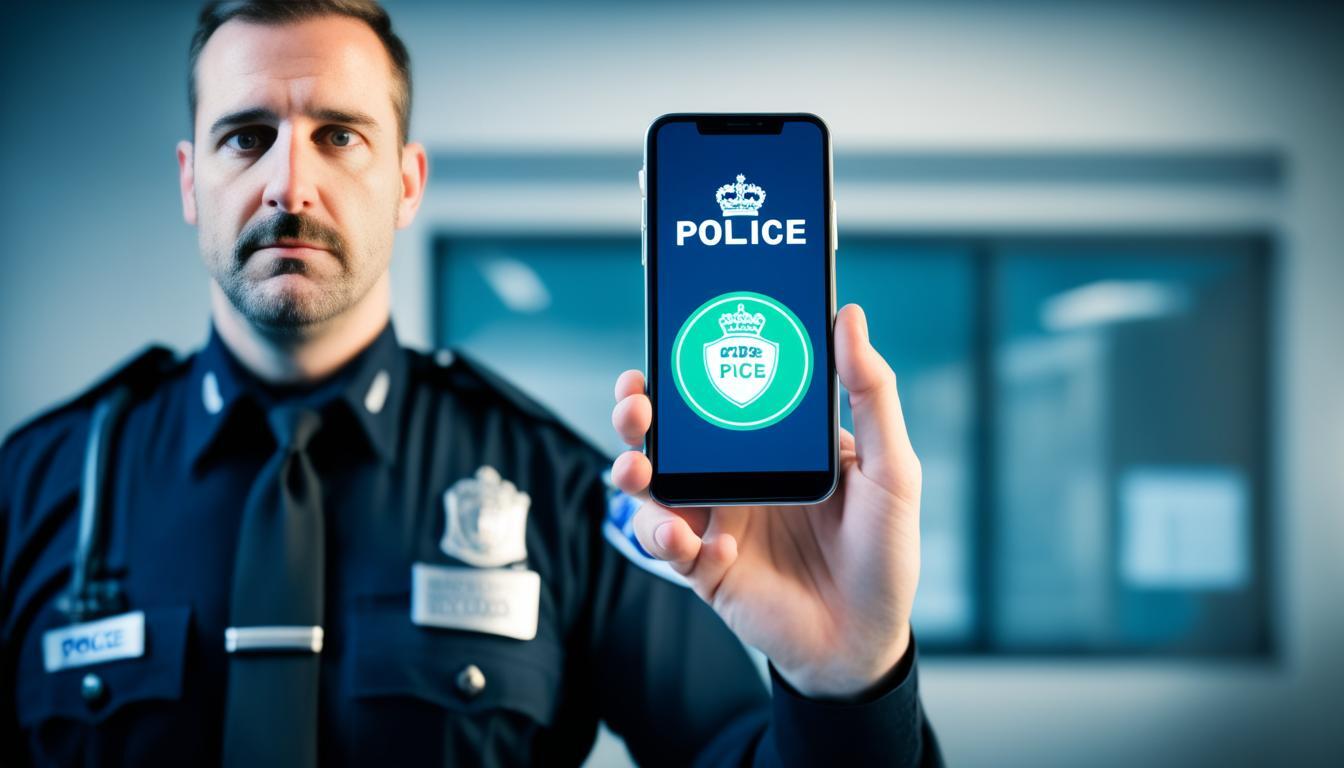Understanding What Is an Arrest Warrant Explained
Did you know that an arrest warrant allows the police to search and take someone into custody without formally charging them with a crime? It’s an essential tool in law enforcement that ensures the safety of the public and upholds the standards of justice.
When the police have reasonable grounds to suspect that an individual has committed a criminal offense, they can request an arrest warrant. The decision to issue a warrant lies in the hands of a judge or justice of the peace, who carefully evaluates the evidence presented by the Crown attorney or their designate.
Understanding what an arrest warrant entails is crucial for anyone seeking to navigate the legal system with confidence, regardless of their involvement in a criminal matter. In this article, I will explain the definition of an arrest warrant and provide valuable insights into its types, legal processes, and the actions individuals should take if a warrant has been issued for their arrest.
Key Takeaways:
- An arrest warrant allows the police to search and take someone into custody without formally charging them with a crime.
- It is issued when the police have reasonable grounds to suspect an individual has committed a criminal offense.
- A judge or justice of the peace decides whether to issue an arrest warrant based on the evidence presented by the Crown attorney or their designate.
- Understanding what an arrest warrant entails is crucial for navigating the legal system confidently.
- In this article, you will learn more about the types of arrest warrants, the legal process involved, and what to do if a warrant has been issued for your arrest.
Types of Arrest Warrants
In Canada, there are different types of arrest warrants that can be issued by the court:
- Bench Warrant: This type of warrant is issued by a judge or justice of the peace when an individual fails to appear in court for their criminal matter. It can also be issued for other reasons such as failure to pay fines or breach of conditions.
- Arrest Warrant: An arrest warrant is issued when the police have reasonable grounds to suspect that an individual has committed a criminal offence. It allows the police to search for and arrest the person without formal charges being laid.
- Search Warrant: A search warrant is issued to authorize the police to search a specific location for evidence related to a crime. It is often obtained in cases where there is a belief that evidence may be hidden or destroyed without a warrant.
- Telewarrant: A telewarrant is an electronic version of a bench warrant that allows the police to search and arrest someone without being physically present in court. It is typically used when it is impractical for the police to appear before a judge or justice of the peace in person.
Each type of arrest warrant serves a specific purpose within the legal system, providing law enforcement with the necessary authority to carry out their duties. Understanding these different types of warrants is essential for both individuals who may be subject to one and for the general public.

Legal Process of Arrest Warrants
When an arrest warrant is issued, it sets in motion a series of legal procedures that are followed to ensure a fair and just process. Understanding the legal process of arrest warrants is important for both law enforcement agencies and individuals involved.
The arrest warrant process typically involves the following steps:
- Issuance of the Warrant: A judge or justice of the peace reviews the evidence presented by the Crown attorney or their designate to determine if there are reasonable grounds to believe that an individual has committed a crime. If the judge or justice of the peace is satisfied, they issue the arrest warrant.
- Entry into the Warrant System: Once an arrest warrant is issued, it is entered into the national warrant system, which allows law enforcement agencies across the country to access and execute the warrant.
- Execution of the Warrant: Law enforcement officers, upon obtaining an arrest warrant, have the authority to search for and apprehend the individual named in the warrant. They may take the person into custody and bring them before the court.
- Appearance before the Court: After the arrest, the individual will be brought before the court as soon as reasonably possible. This is to ensure that the person understands the nature of the charges against them and to provide an opportunity for a bail hearing.
- Judicial Review: During the court proceedings, the legality and validity of the arrest warrant may be subject to judicial review. The judge may assess the evidence and determine if the warrant was lawfully issued.
- Resolution of the Case: The arrest warrant marks the beginning of the legal process for the accused. The case will then proceed through the criminal justice system, where it will be ultimately resolved either through a trial or other legal outcomes, depending on the circumstances.
Understanding the legal process of arrest warrants provides insight into what happens once a warrant is issued and helps individuals navigate the complexities of the justice system.

Factors Justifying a Warrant for Arrest
A warrant for arrest is justified when a judge or justice of the peace has reasonable grounds to believe that the individual has committed a crime and that their arrest is necessary to protect the public and uphold the standards of law enforcement. Factors that may justify a warrant include:
- Strong evidence linking the individual to the crime, such as eyewitness testimonies, DNA evidence, or surveillance footage.
- Reasonable belief that the individual poses a threat to themselves, others, or the community at large.
- Non-compliance or evasion of law enforcement, suggesting a potential flight risk.
- Past criminal history or involvement in similar offenses.
- Suspicion of tampering with evidence or obstructing the course of justice.
- Violation of court-ordered conditions, such as failing to appear in court or breaching probation.
In each case, the decision to issue a warrant rests on the sound judgment of the judge or justice of the peace, who carefully evaluates the available evidence and considers the potential impact on the administration of justice.
Bench Warrants Explained
A bench warrant is an arrest warrant that is issued by a judge or justice of the peace when an individual fails to appear in court for their criminal matter. It can be issued for various reasons, including failure to appear as directed, failure to pay fines, breach of conditions, or contempt of court. If a bench warrant is issued, the individual will typically not be released until they appear before the court. It is important to contact a lawyer and/or the court immediately if a bench warrant is believed to have been issued to plan for an appearance in court.
Missing a court appearance can have serious consequences, and a bench warrant is a legal tool used to ensure individuals follow through with their legal obligations. When a bench warrant is issued, the police have the authority to arrest the individual and bring them before the court to address the underlying issues.
If you believe a bench warrant has been issued against you, it is essential to take immediate action. Contacting a lawyer who specializes in criminal law can provide you with the guidance and representation needed to navigate the situation effectively. They can help you understand the implications of the bench warrant and help you prepare for your appearance in court.
Ignoring a bench warrant is not advisable, as it can lead to further legal troubles and may result in additional charges or penalties. By proactively addressing the situation, you can work towards resolving the underlying issues and preventing further negative consequences.
To avoid finding yourself in a situation where a bench warrant is issued, it is important to stay informed about your legal obligations and court appearances. If you are unable to attend a scheduled court date, contacting the court as early as possible and seeking an adjournment or providing a valid reason can help prevent the issuance of a bench warrant.
Telewarrant Process
A telewarrant is an electronic version of a bench warrant that allows the police to search and arrest someone without being physically present in court. In the telewarrant process, a police officer must communicate with a judge or justice of the peace via telecommunication. They present reasonable grounds to believe that the individual has committed an indictable offence.
To obtain a telewarrant, the police must also show that it would be impractical for them to personally appear before the justice to obtain the warrant. This process streamlines the issuance of warrants, saving time and resources in situations where physical presence in court is not feasible.
However, it is important to note that even with a telewarrant, individuals still have rights and protections during their arrest and detention. The telewarrant process is designed to ensure lawful arrests while maintaining proper legal procedures.
Telewarrant vs. Bench Warrant
| Telewarrant | Bench Warrant |
|---|---|
| Electronic version of a bench warrant | Arrest warrant issued by a judge or justice of the peace |
| Allows police to search and arrest without being physically present in court | Issued when an individual fails to appear in court |
| Requires telecommunication between police officer and judge/justice of the peace | May result from failure to appear, failure to pay fines, breach of conditions, or contempt of court |
| Impractical for police to personally appear in court to obtain warrant | Individual typically not released until appearance in court |
What to Do If There is a Warrant for Your Arrest
If you find out that there is a warrant for your arrest, it is crucial to take immediate action. Ignoring a warrant can lead to further legal consequences and may negatively impact your case. Here are some steps to consider:
1. Consult with a lawyer: It is important to seek legal advice from a qualified criminal defense lawyer as soon as possible. They can guide you through the legal process, explain your rights, and help you navigate the warrant situation.
2. Turn yourself in: It is advisable to contact law enforcement and arrange to surrender yourself. Cooperating with authorities demonstrates your willingness to address the warrant and can potentially lead to a smoother process.
3. Gather necessary information: Prior to turning yourself in, collect any relevant documentation, including identification, contact information of witnesses, and any supporting evidence that may help your case. This will assist your lawyer in building a strong defense strategy.
4. Follow legal advice: Once you have enlisted the help of a lawyer, it is crucial to follow their guidance and adhere to any legal instructions provided. Your lawyer will work towards protecting your rights and ensuring the best possible outcome for your case.
- The Role of Police in Community Safety & Unity - October 6, 2025
- Quebec Police Officer Salary Insights 2023 - July 13, 2025
- Canada Arrest Protocol: What Police Say Upon Arrest - June 12, 2025




















Post Comment